Looking for a simple and straightforward shooting competition that doesn’t require tons of special equipment or learning a bunch of nitpicky rules just to figure out the basics of how a match works?
Then Steel Challenge is for you.
Wait–you want to know more about it than that?
Okay, fine. You asked for it! Let’s take a closer look at how it works, what you need to get started, and different classes and stages you’ll need to know about.
Table of Contents
Loading…
What Is Steel Challenge?
Well, that’s easy!
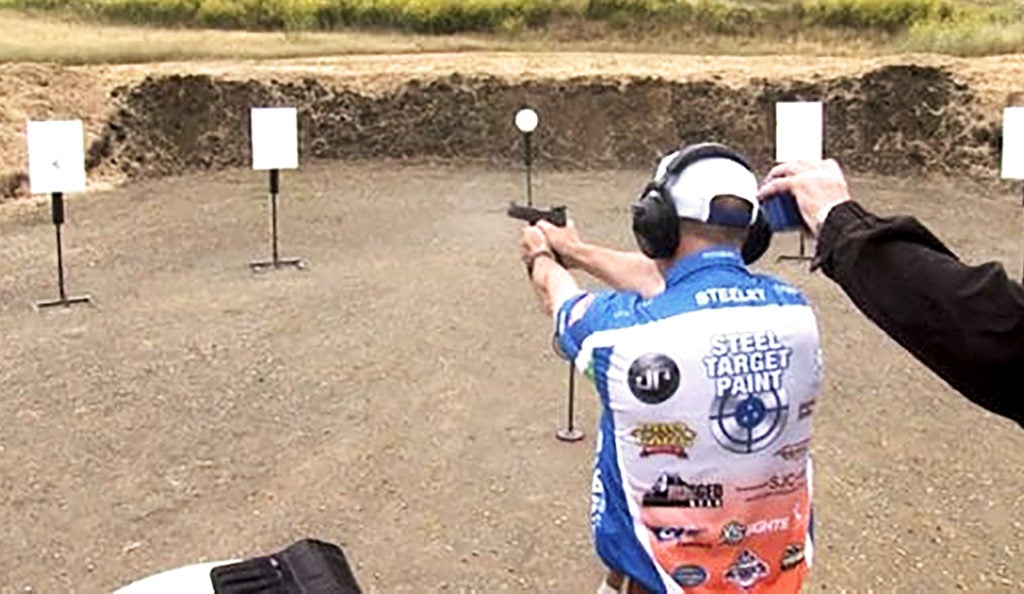
Steel Challenge competition is a fun and exciting avenue of speed shooting competition, but it’s ultimately not much more than organized, competitive plinking.
It was started in 1981 and has since grown into one of the largest pistol competitions in the United States. In addition to the annual Steel Challenge World Speed Shooting Championships, there are tons of other Steel Challenge competitions held throughout the year both around the United States and even internationally.
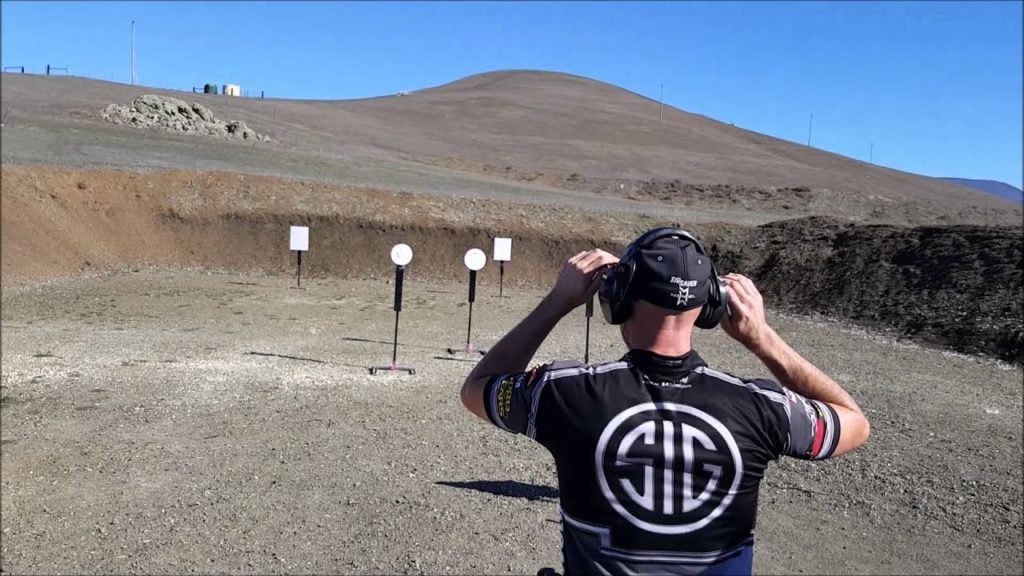
In 2007, Steel Challenge’s founders, Mike Dalton and Mike Fichman, sold Steel Challenge to the United States Practical Shooting Association (USPSA), which has been managing and organizing Steel Challenge competition, including the annual US National Steel Championship, ever since.
How to Shoot Steel Challenge
Competitors shoot in eight stages of five targets each. In each stage, shooters give five runs, or opportunities to shoot the stage’s course (with the exception of Outer Limits, in which shooters only get four runs). You may also hear runs referred to as “strings.”
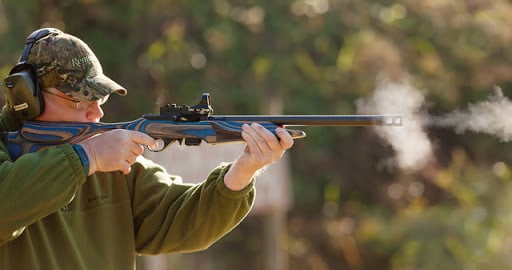
Each run is timed and the shooter must hit all five targets to complete the run, but only need to hit each target once and are allowed as many rounds as they need. One target is designated the “stop plate.”
The timer cut off is triggered by hitting the stop plate, so the shooter must hit all four other targets before hitting the stop plate.
They can hit the other four targets in any order they choose before hitting the stop plate–unless a stage’s rules designate otherwise–but the setups of the different stages typically encourage certain shooting patterns.
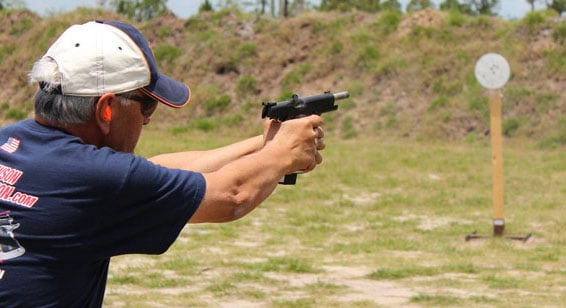
In addition, runs are cut off at 30 seconds, even if a shooter hasn’t yet hit all five targets. If a shooter hits the 30-second cut off, they must move on to the next run—no redo allowed.
In Steel Challenges, stages are almost always the standard stages, meaning they are the same every time. All but one stage are shot in a standing position within a three-foot by three-foot box, with no movement required!
Steel Challenge Stages
Now let’s break each stage down a bit!
Stages are all pretty straightforward, and–like we said–the plates can largely be shot in any order, so long as the stop plate is last. Some levels may dictate the order, but it’s a general rule.
We’re going to post the official diagrams for every stage below, but honestly–just watch the videos of some awesome shooters having a great time running these stages, and you’ll get the idea!
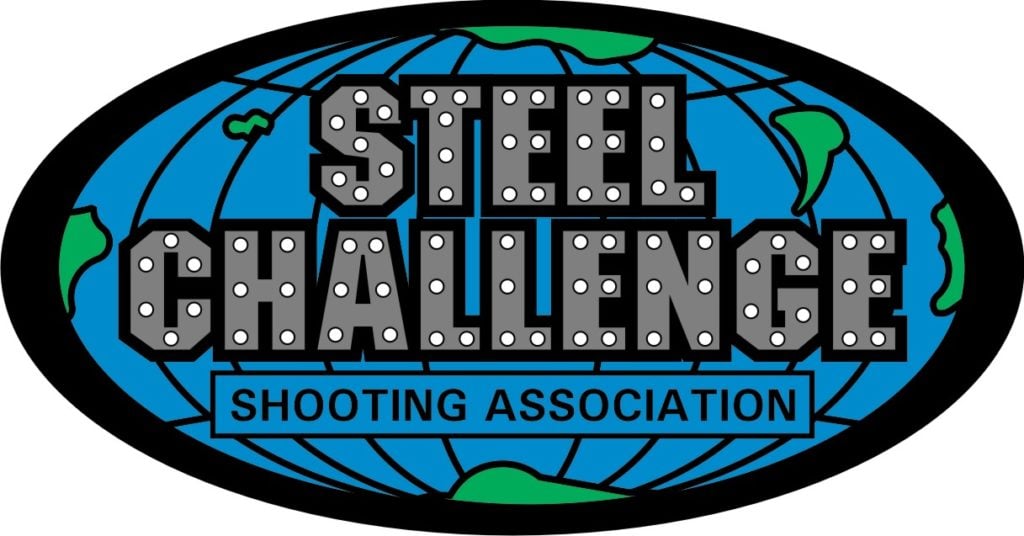
Please note that some aspects of each stage might be different at some competitions due to range limitations or other factors. Descriptions here are going by the official SCSA Championship Rulebook.
1. Five to Go
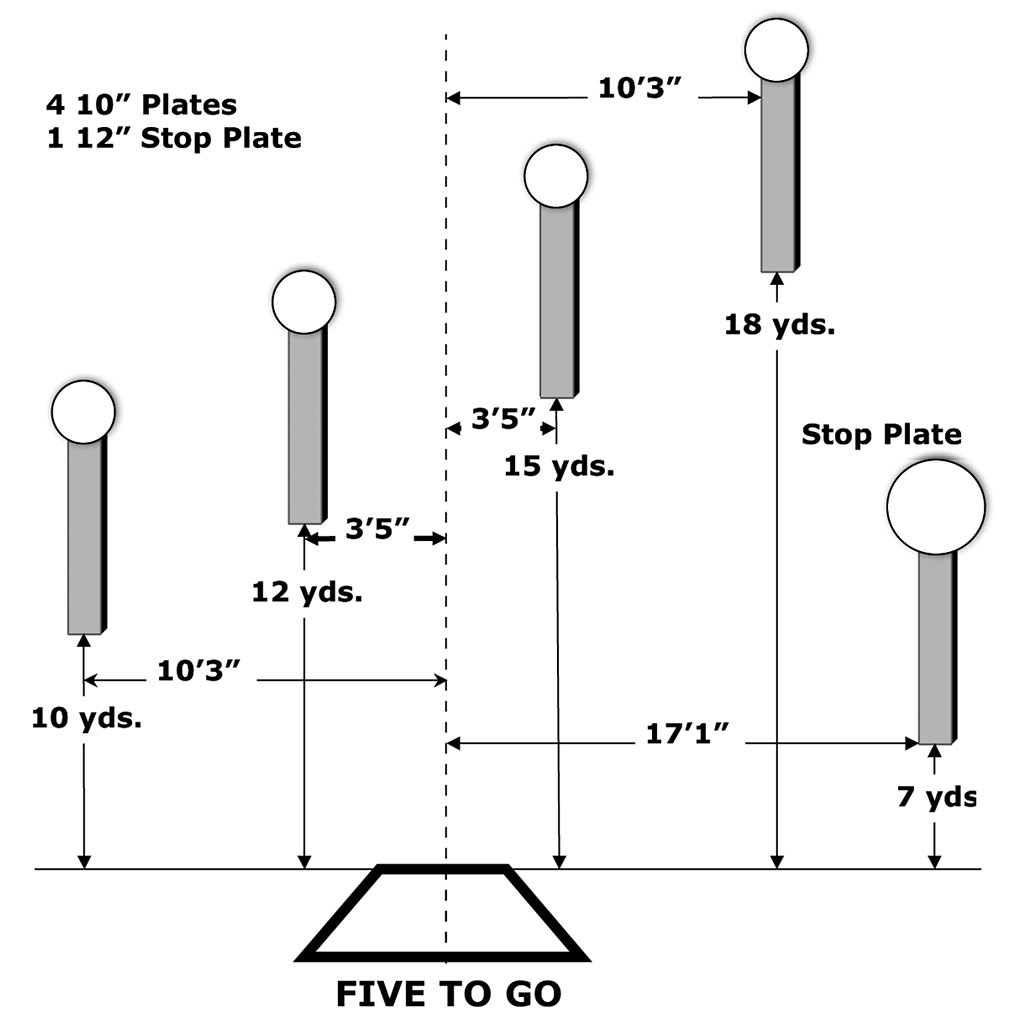
As you can see in the diagram, there’s one shooting location, 4 plates, and a stop plate. 5 shots and you’re done with one round!
2. Showdown
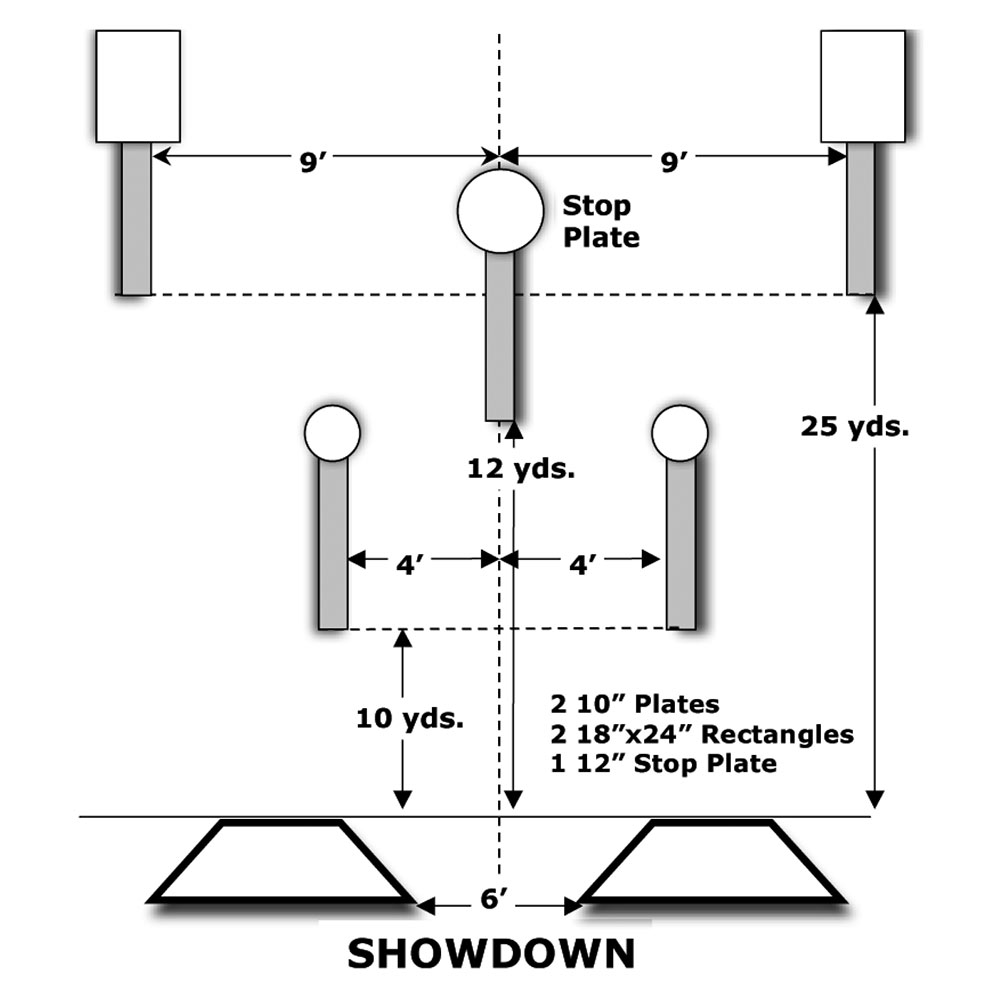
As you can see in the diagram above, the Showdown course has two boxes.
The shooter takes two runs from one box and three from the other. Shooters get to choose which runs to take from which box, but they may not move from one to the other during a run.
3. Smoke & Hope
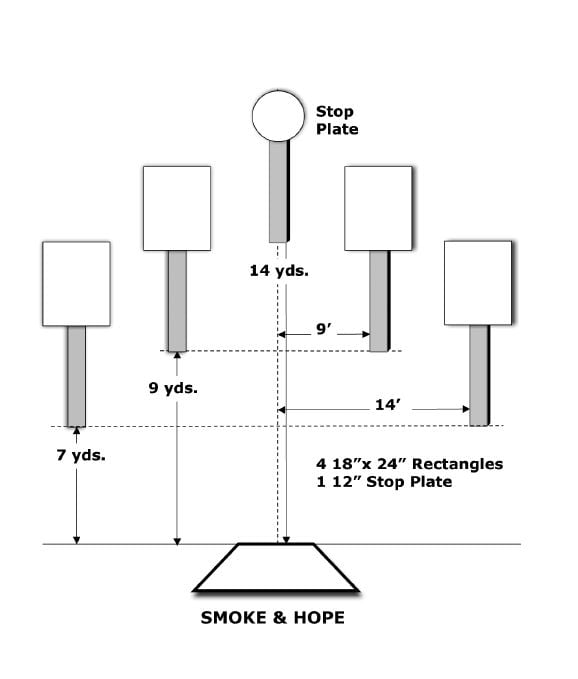
Four large plates at two different distances, and a stop plate in the center, at the rear. This stage also doesn’t require shooters to move.
4. Outer Limits
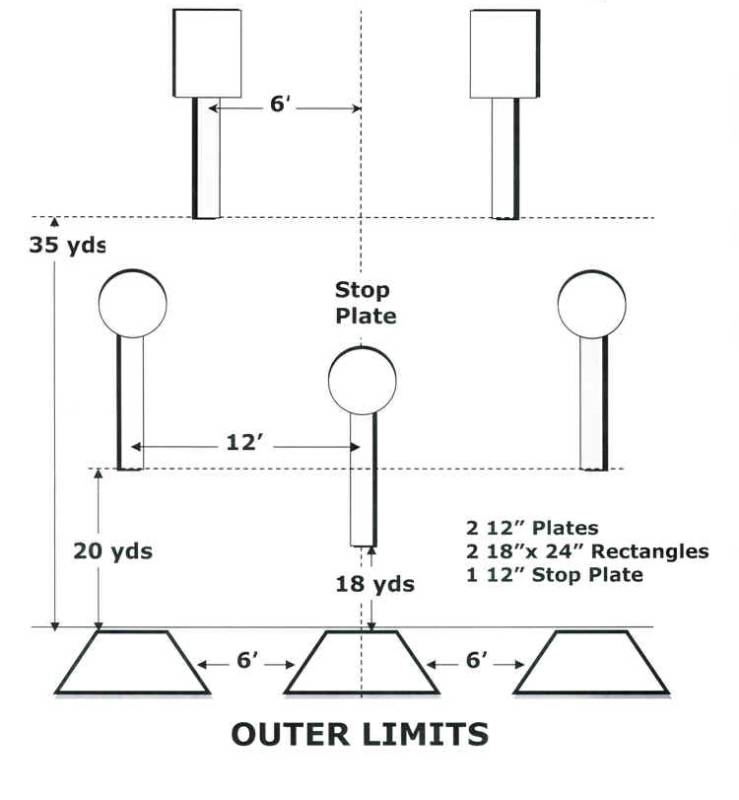
The Outer Limits course is designed to be difficult, but at least shooters only have to complete four runs of this course. Outer Limits has longer shots than any other stage and is the only stage where shooters move during runs.
The course has three boxes, which are larger than in other stages at four feet by four feet, but shooters will only use two of them.
When shooting this stage, shooters start in the box on their weak side where they engage the two targets on that side, so right-handed shooters will start in the box farthest to the left, while southpaws will start in the box farthest to the right.
After completing those targets, shooters move to the center box and hit the final three targets. The clock continues to run during movement.
5. Accelerator
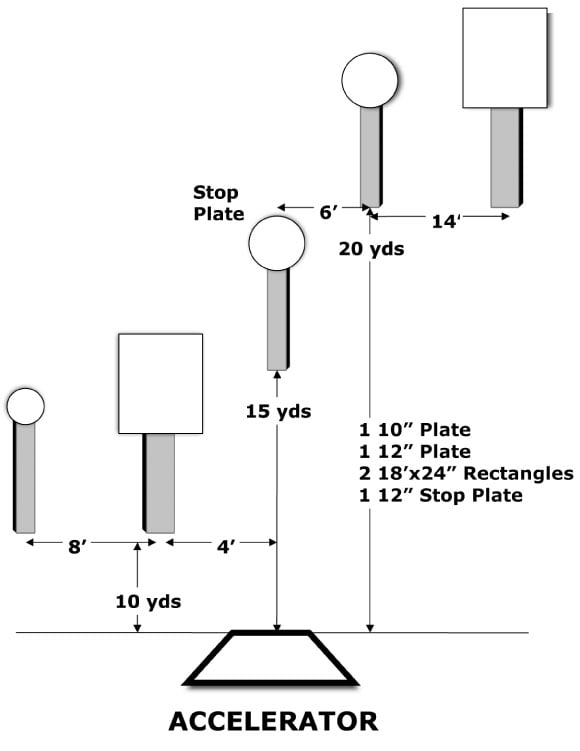
This stage is a fun mix of circular plates and rectangular plates of varying sizes.
6. Pendulum
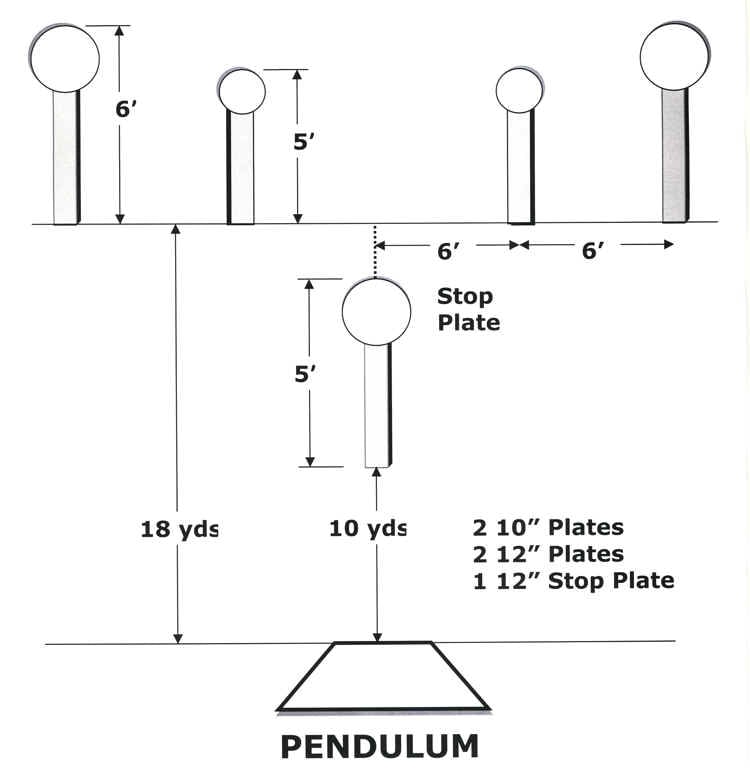
Pendulum has you swinging back and forth, hitting steel plates on either side of the stop plate.
7. Speed Option
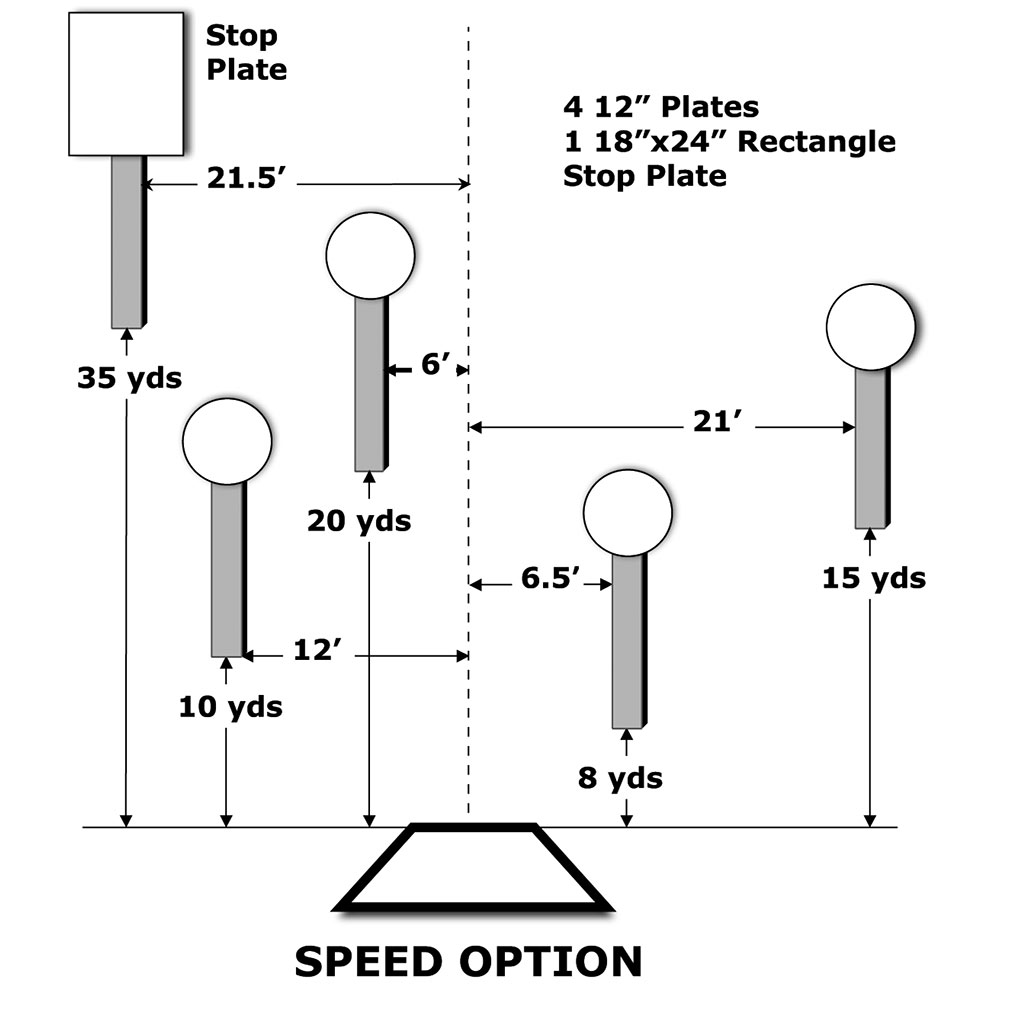
Speed Option gives you plates at a variety of distances so you can really work on that depth perception!
8. Roundabout
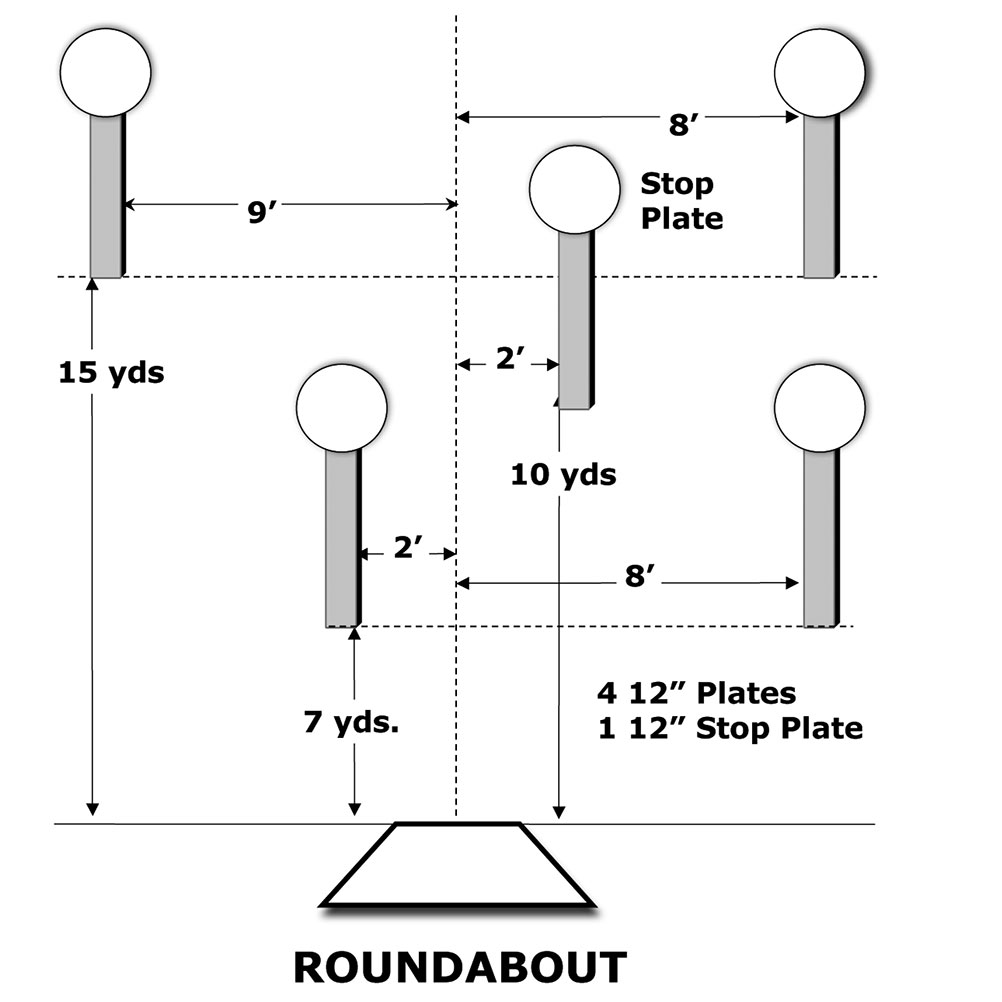
Roundabout looks a little like its namesake, four plates arranged around the central stop plate.
Scoring
Scoring is super straightforward.
The times for all but the slowest run in each stage is totaled together to get the shooter’s score for that stage. Time may be added for penalties (three or four seconds, depending on the penalty), but not for misses as long as the shooter hits the target before hitting the stop plate.

All eight stage scores are totaled to get the competitor’s overall score.
Obviously, the lowest score wins. This is speed shooting after all.
In the event of a tie in overall score, the tie-breaker is the number of stage wins. For ties within stages, the tie-breaker is the fastest single run time.
Competition Classification, Categories, & Divisions
Competitors all compete against each other for competition wide ranking, but scores are also compared across three different types of groupings: classification, category, and divisions.
I know those all sound like the same thing, so let’s talk about the differences.
Classification
Classification is the grouping based on skill level.
Once you’ve shot at least four official stages, you can be classified based on your times. Classifications are determined by percentiles in comparison to other shooters. For example, shooters in the 95th percentile and above, or the top 5 percent of shooters, are placed in the top class, GM.
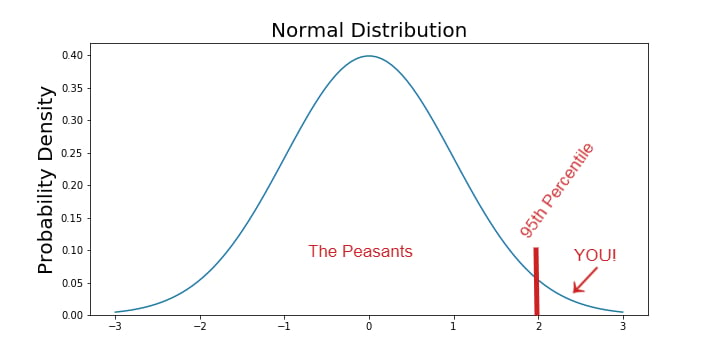
Classifications are updated each week to reflect scores from events that have occurred during that time period. Your classification percentile can drop, but your actual class will not, so if you earn a spot in the GM class, you will continue to be considered part of that class, even if your percentile drops below 95.
You’ll only ever compete in one class at a time.
Category
Categories are based on personal attributes, predominantly age.
Current Steel Challenge categories are:
- Lady: Competitors designated female on their ID.
- Law Enforcement: Full-time law enforcement officers.
- Military: Active duty members of the armed forces.
- Pre-Teen: Competitors less than 13 years old on the first day of competition.
- Junior: Competitors less than 18 years old on the first day of competition.
- Senior: Competitors who are between 55 and 64 years old on the first day of competition.
- Super Senior: Competitors who are 65 years old or older on the first day of competition.
Competitors can enter in any and all categories that they qualify for.
For example, a 56-year-old female police officer could enter into the Lady, Law Enforcement, and Senior categories within the same competition.
Division
Division is a grouping based on the characteristics of the firearm used.
Unless a particular match specifies otherwise, competitors can enter multiple divisions.
They may use the same gun in multiple divisions as long as it meets the qualifications for each of those divisions, or they may use different guns for different divisions. Competitors may not, however, compete with multiple guns within the same division.
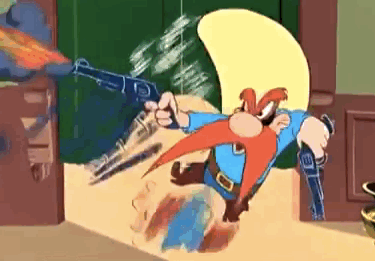
Divisions tend to switch up from year to year, but as of 2019 there are twelve divisions in four different groupings. The groupings are Rimfire Pistol, Rimfire Rifle, Pistol Caliber Carbine, and Centerfire Pistol.
Rimfire Pistol is open to .22LR caliber pistols and Rimfire Rifle, similarly, is open to .22LR caliber rifles.
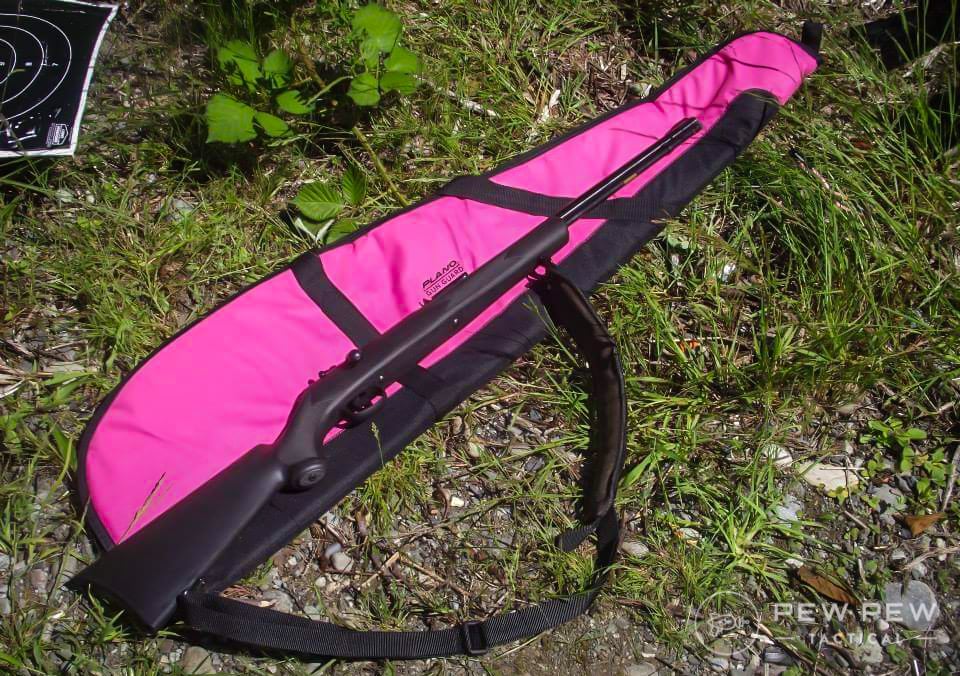
Pistol Caliber Carbine allows pistol caliber carbines without a requirement for a specific caliber. Centerfire Pistol allows pistols with a caliber of 9mm or .38 Special and larger.
The first three groupings have two divisions each, an Open division that allows any gun that fits into the group and an Iron Sight division that allows guns of the corresponding group with iron sights and no optic sights.
The rest of the divisions fall under the Centerfire Pistol umbrella.
The Centerfire Pistol Open and Centerfire Pistol Limited divisions respectively correspond to the Open and Iron Sight divisions described above.

The Production division is open to guns on the USPSA Production gun list and the Single Stack division is open to 1911s. Carry Optics allows centerfire pistols with optic sights.
Finally, the Revolver division is further divided into two more subdivisions, Optic Sight Revolver and Iron Sight Revolver. As you can probably guess, placement is determined by the type of sight the revolver uses.
Additional rules and restrictions for the equipment used in each of these divisions can be found in the official Steel Challenge Rulebook.
Guns to Get You Started
With so many divisions available, you very easily could already have a gun that’s eligible for at least one Steel Challenge division.
If you don’t, though, and want to give Steel Challenge a try, I have some recommendations.
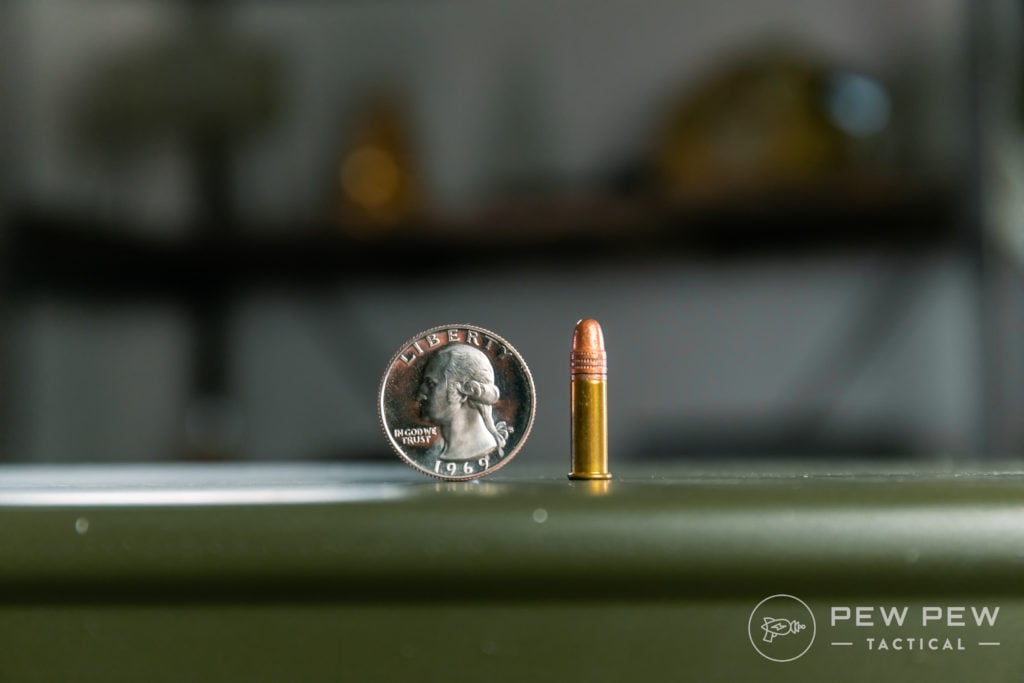
First, the Rimfire Rifle Open and Rimfire Pistol Open divisions are both good places to start. They’re a couple of Steel Challenge’s most popular divisions, plus they’re easy to find affordable firearms for and .22LR makes it easy to get used to the competition format.
Starting with an affordable gun is a good idea, so if you end up not liking Steel Challenge, at least you haven’t made a huge monetary investment.

With that said, it’s also a good idea to go with a gun that you can improve and build on, so if you do get really into Steel Challenge, you won’t feel the need to immediately replace your first gun for something better.
Instead, you can do some cheaper performance improvements, save some money, and then use that for an even better gun later on. Or you can just keep building and improving your first gun.
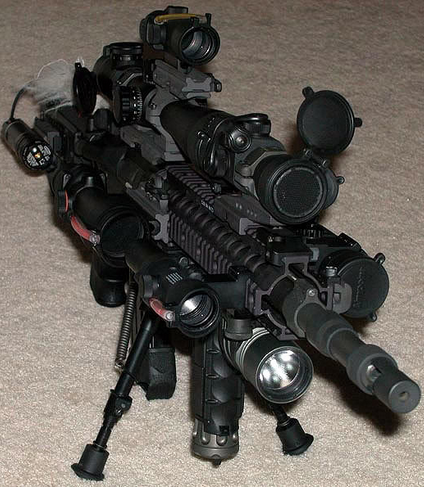
I’m not trying to tell you what to do.
With that in mind, I recommend starting with the Ruger 10/22 for Rimfire Rifle and the Ruger 22/45 for Rimfire Pistol. No, this post isn’t sponsored by Ruger or anything, they just happen to make two really great guns for this purpose.
Prices accurate at time of writing
Prices accurate at time of writing
-
25% off all OAKLEY products - OAKLEY25
Copied! Visit Merchant
Each is reasonably priced, but is also a popular choice for Steel Challenge shooters. Each also has a large variety of upgrade and accessory options available (especially the 10/22) to take your competition gun to the next level.
Prices accurate at time of writing
Prices accurate at time of writing
-
25% off all OAKLEY products - OAKLEY25
Copied! Visit Merchant
Other Equipment
In addition to their firearm, Centerfire Pistol competitors will need a holster waist-mounted (or hip-mounted for female competitors) holster that provides trigger coverage. They will have to draw from their holster for competition.
Prices accurate at time of writing
Prices accurate at time of writing
-
25% off all OAKLEY products - OAKLEY25
Copied! Visit Merchant
Rimfire Pistol competitors don’t have to have a holster, but they may find one useful for moving between stages. Likewise, Rimfire Rifle and Pistol Caliber Carbine competitors may find a gun cart useful for transporting guns between stages.
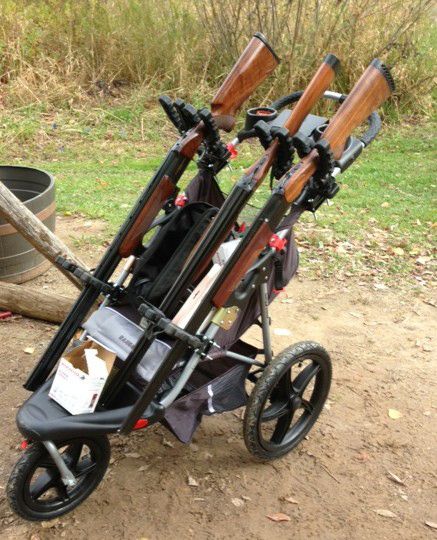
Shooters are expected to arrive at the shooting line ready to get started, so you’ll also want to make sure you have enough magazines to last you through all five runs.
Ideally, you’ll have enough that even if you happen to forget to reload between stages, you can still make it through the next stage.
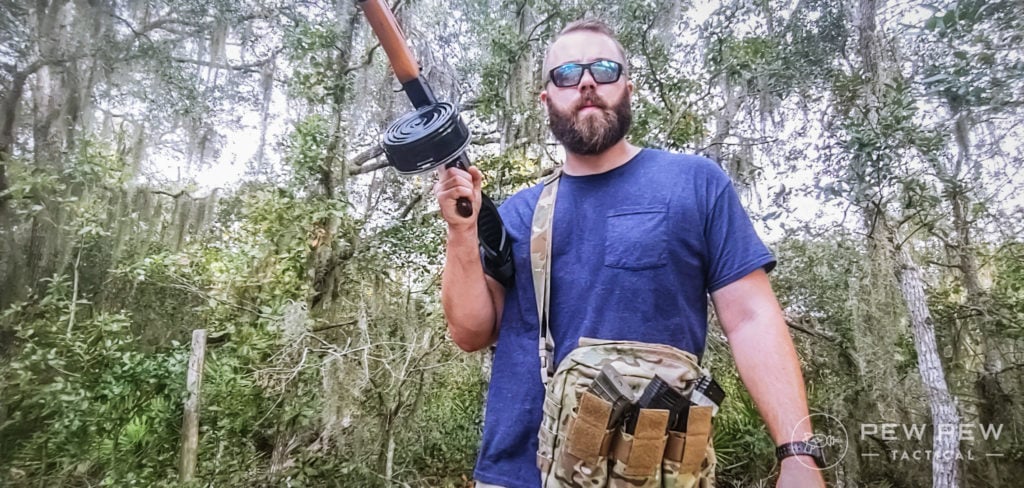
If you have to reload at the line and cause a match delay, you can earn a penalty.
At the very least, you’ll want to make sure that you have a speed loading device of some kind so you can reload as quickly as possible in a pinch.
Prices accurate at time of writing
Prices accurate at time of writing
-
25% off all OAKLEY products - OAKLEY25
Copied! Visit Merchant
Plus, it just saves you some pain and effort since you’ll likely have to reload a few times throughout the competition.
Magazines can be kept on the shooting table or bench near the shooting box, but they may also be kept on the belt. If you prefer to do the latter, you’ll of course also need magazine holsters.
-
25% off all OAKLEY products - OAKLEY25
Copied! Visit Merchant
Hearing and vision protection is required for not just competitors, but also all spectators.
(Check out the best hearing protection and best eye protection!)
For practicing on your own time, you’ll want to get a set of steel targets. Shoot Steel sells individual plates as well as plate sets and speed racks, so you can customize your set up to your heart’s content! We even have a full review of their plates.
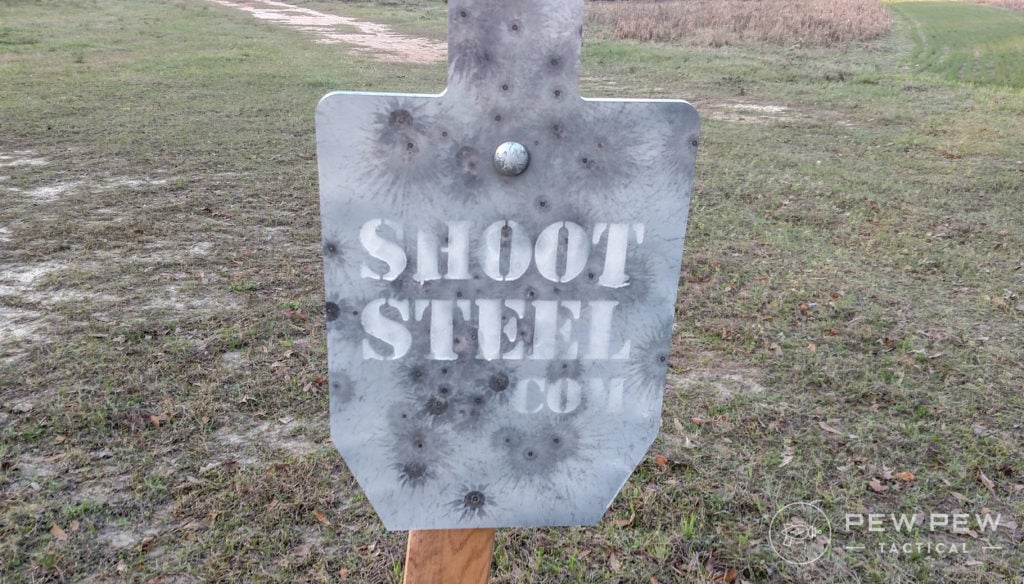
Finally, you’ll need to make sure you have plenty of ammunition to get you through the competition. It’s essential, but it can be easy to forget if you’re not careful.
How to Get Involved in Steel Challenge Competition
So now you know the basics of Steel Challenge competition.
The simple rules and minimal, basic equipment of this competition style make it a great option for those who’ve never competed before or those who are just looking for nice and relaxed competitive experience.
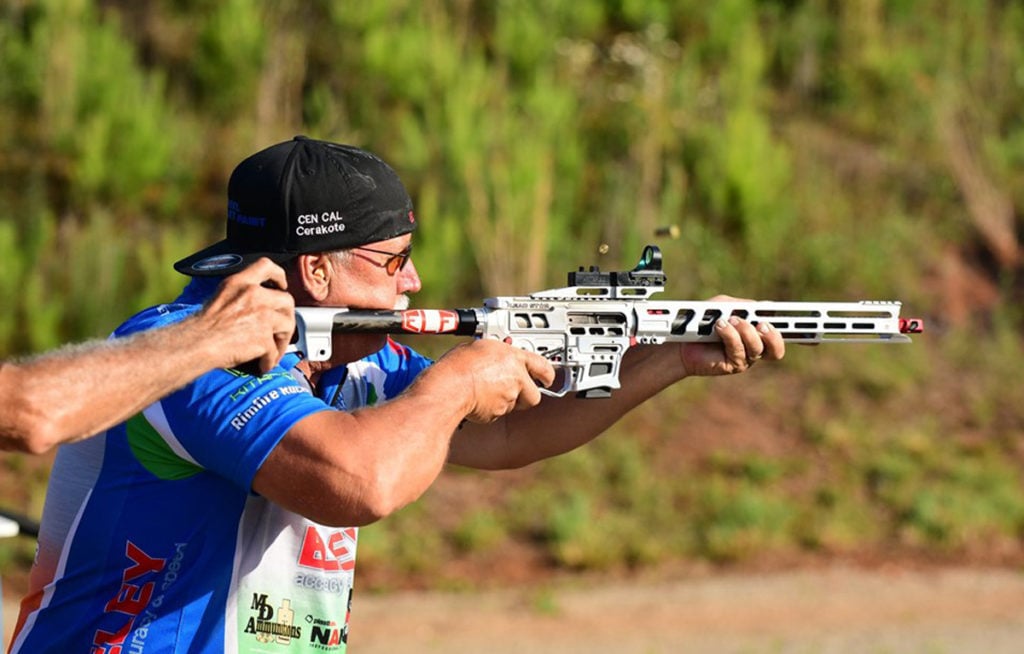
Now that’s not to say that people don’t take Steel Challenge seriously, but the simplicity of this competition seems to create a more chill, lighthearted atmosphere than a lot of competitions. Whether you’re watching or participating, Steel Challenge is always a good time.

And speaking of watching–the simple rules but interesting stages mean that Steel Challenge is super spectator-friendly, so even if you’re not ready to take part yet, I definitely recommend trying to find a match near you to go watch.
You can even watch the Steel Challenge Championships each year on the Outdoor Channel from the comfort of your own home!
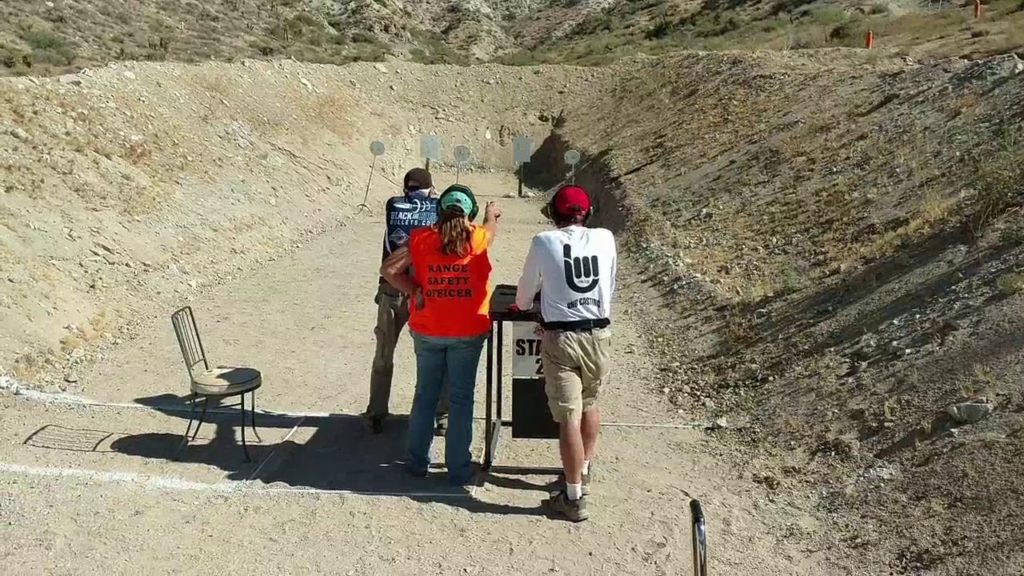
Or you can take the plunge and find your local Steel Challenge club to get started with a competition.
So now that you know more about Steel Challenge competition, what do you think? Are you going to check out a match or even try your hand at it yourself? Let me know in the comments. Or, if you’ve tried Steel Challenge before, share your experiences! And for still more competition styles, check out our Competition Shooting Guide.

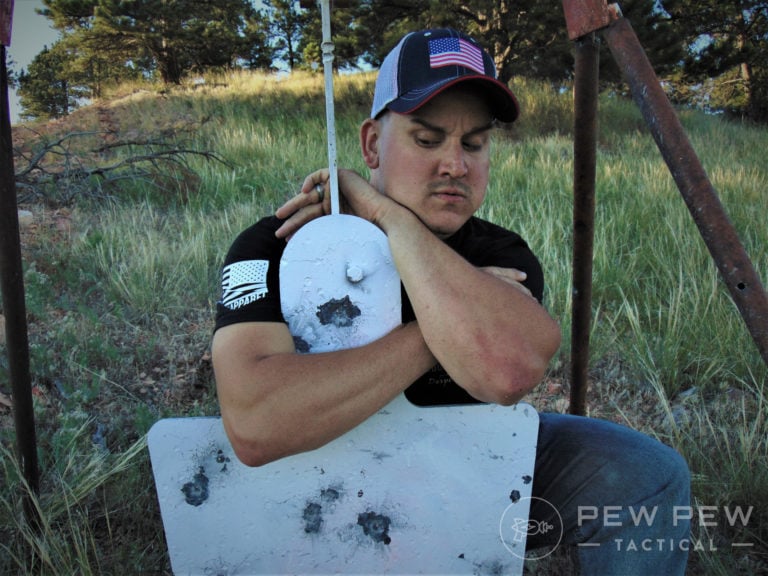
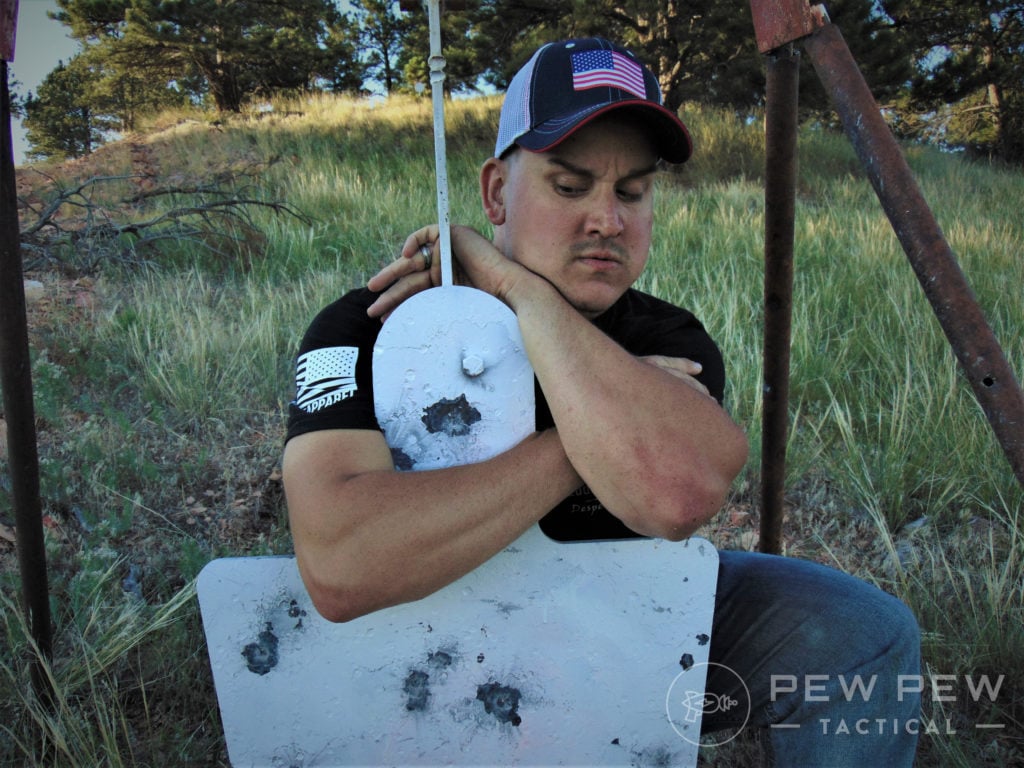









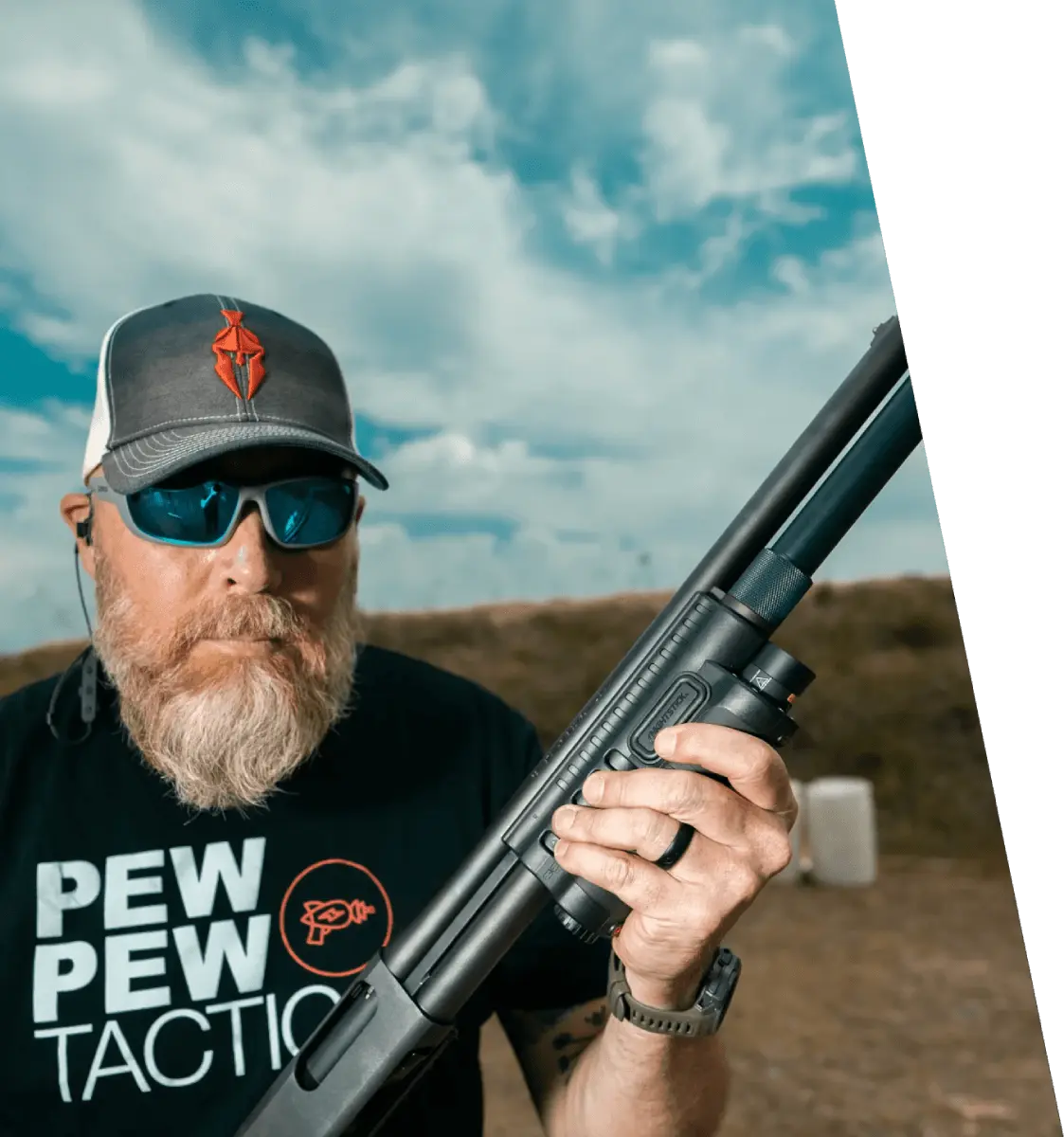

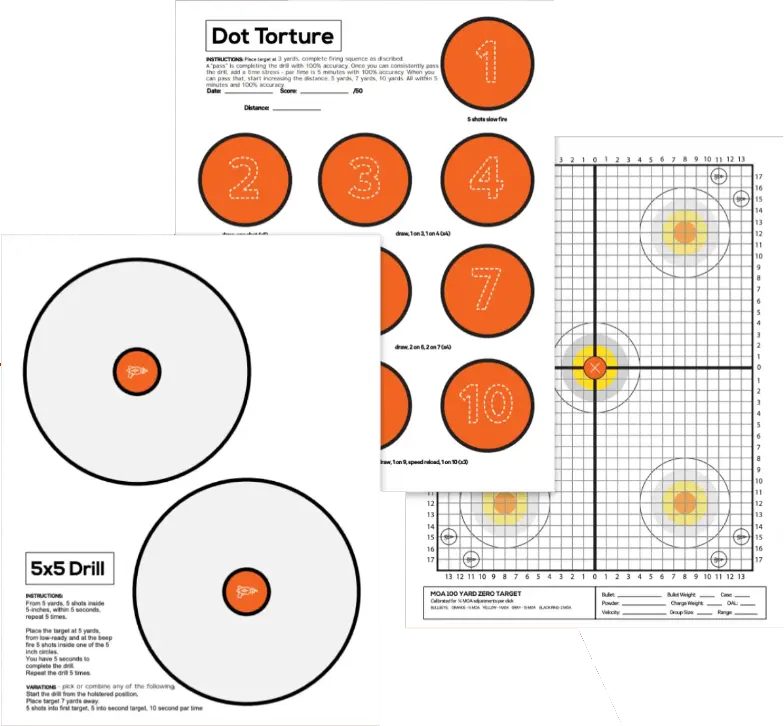
4 Leave a Reply
I shoot steel challenge at least once a month and use a mostly unmodified 10/22. Some folks use more modified gear by most are certainly recognizable as their original make. There are usually a couple "race guns" but I still rank in the top 3-4 in my division regularly.
Greetings. My concern is that I show up with a stock 10/22, and no one else there has one. Everything they own has been so modified that you cannot even tell that it is a 10/22 any longer. Apparently there is just too much temptation for people. They cannot just leave it alone. I say this because I went as an observer to a USPSA match and a IDPA match where all I saw was carry optics, pistol caliber carbines, and unaffordable "John Wick" guns. A real turn off. I am aware that it is 2024 and not 1984. Times change and I did not.
You went to the wrong matches. Go to a Steel Challenge match. Sure there are some expensive guns at every match but the regular group I shoot with shoots everything from stock 10/22's to JP PCC's
I am wanting to know jus getting in to steel shooting what caliber is best in ak's etc pistols rifles etc and what is the typical longest distance targets are set up